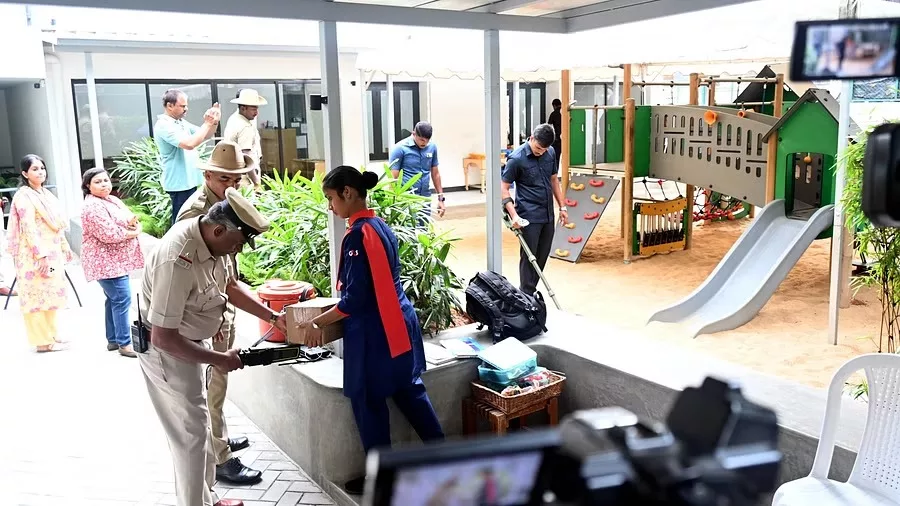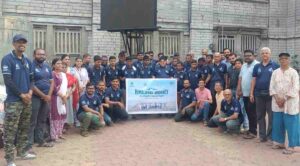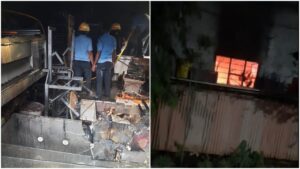Security Measures Tightened in Bengaluru Schools After Bomb Threat ; Non-Academic Activities Restricted

Security Measures Tightened in Bengaluru Schools After Bomb Threat ; Non-Academic Activities Restricted
In response to a hoax bomb threat that targeted 68 schools in Bengaluru on December 1, the Department of School Education and Literacy (DSEL) has issued a directive instructing all government, aided, and unaided schools to refrain from permitting their premises for anything other than academic and extracurricular activities by students.
According to the new order, schools are required to obtain government permission for any non-academic activities. Additionally, school principals are mandated to promptly notify both the police and DSEL officials if any unauthorized individuals are found on the school premises or if threatening emails are received.
Advocates for a robust Child Protection Policy have seized upon this incident to emphasize the urgency of implementing such measures. BB Cauvery, the Primary Education Commissioner, explained, “We issued the order following the hoax bomb threat, emphasizing that children should not be involved in any other activities. It’s crucial to prioritize student safety, and while it turned out to be a false alarm, we are taking precautionary steps. Private events on school premises should be avoided unless they have obtained official permission.”
Despite the issuance of the advisory, critics argue that the government should go beyond mere recommendations and enact laws to safeguard children. A Child Protection Policy order was issued in 2016, but progress has been lacking both on the part of schools and the government.
Nagasimha Rao, Director of Child Rights Trust, expressed disappointment, stating, “While some schools adhere to the circulars, many do not. Teachers and parents need training in crisis management and disaster management guidelines. The December 1 incident served as a wake-up call, and the government should ensure better coordination among departments and strict adherence to cyber policies.”
Rao stressed the importance of having counselors in schools not only for academic support but also to manage crises effectively. Experts are advocating for the involvement of Special Juvenile Police (SJP) and Child Welfare Officers (CWO) to visit schools and ensure that safety protocols are in place.
Shashi Kumar D, the General Secretary of the Associated Management of Primary and Secondary Schools in Karnataka (KAMS), raised concerns about the vulnerability of public schools. He commented, “Anyone can trespass and misuse school property. Public schools lack security and additional staff, making them susceptible to various activities. Incidents like these are unfortunately common.”









